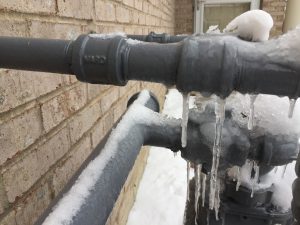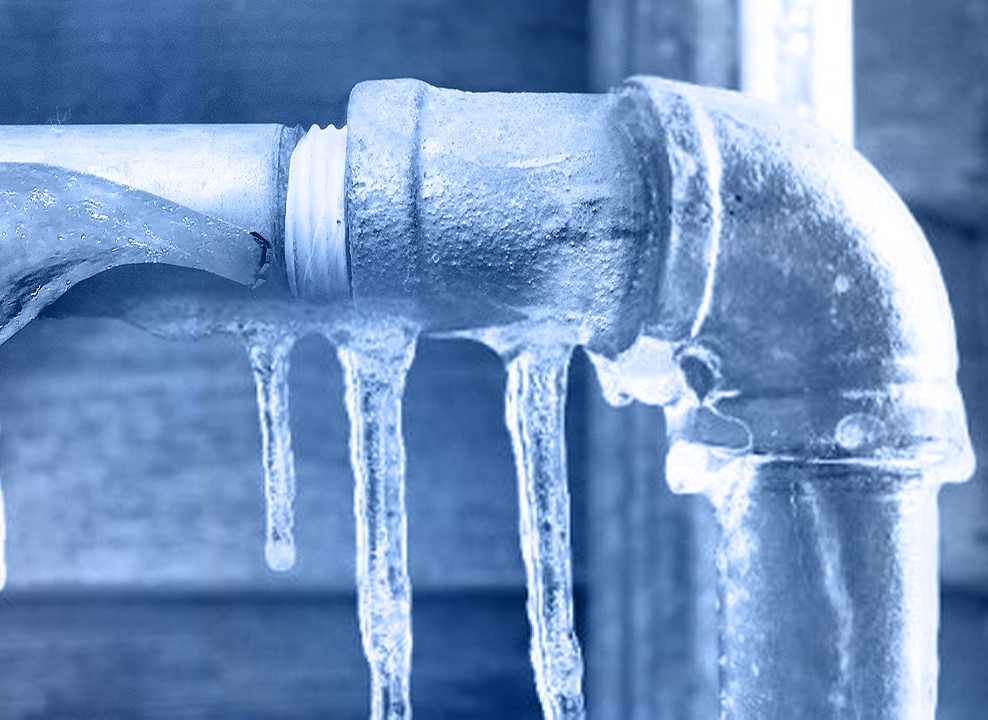Presented here underneath yow will discover more incredibly good guidance concerning How To Avoid Freezing Pipes.

Cold weather can damage your plumbing, specifically by freezing pipes. Below's how to stop it from happening and what to do if it does.
Intro
As temperatures decline, the danger of frozen pipelines rises, potentially causing expensive repair work and water damage. Understanding just how to prevent icy pipelines is important for homeowners in cool climates.
Prevention Tips
Protecting vulnerable pipelines
Wrap pipelines in insulation sleeves or utilize warm tape to shield them from freezing temperature levels. Concentrate on pipelines in unheated or exterior locations of the home.
Home heating methods
Maintain indoor areas effectively heated, specifically locations with plumbing. Open closet doors to allow warm air to distribute around pipelines under sinks.
Just how to determine frozen pipelines
Try to find lowered water circulation from taps, uncommon odors or noises from pipes, and noticeable frost on revealed pipelines.
Long-Term Solutions
Structural modifications
Take into consideration rerouting pipes away from exterior walls or unheated locations. Include extra insulation to attics, cellars, and crawl spaces.
Updating insulation
Buy top quality insulation for pipelines, attics, and walls. Proper insulation aids preserve consistent temperatures and reduces the danger of frozen pipelines.
Safeguarding Outdoor Pipes
Yard tubes and exterior taps
Detach and drain pipes yard hoses prior to winter. Mount frost-proof faucets or cover exterior taps with shielded caps.
Understanding Icy Pipelines
What creates pipes to freeze?
Pipes ice up when exposed to temperatures listed below 32 ° F (0 ° C) for extended periods. As water inside the pipelines freezes, it increases, putting pressure on the pipeline wall surfaces and potentially causing them to rupture.
Risks and damages
Frozen pipelines can cause supply of water disruptions, home damages, and costly repair work. Ruptured pipelines can flooding homes and create substantial structural damage.
Indications of Frozen Water Lines
Determining icy pipelines early can stop them from rupturing.
What to Do If Your Pipes Freeze
Immediate actions to take
If you presume icy pipes, keep faucets open to eliminate stress as the ice melts. Make use of a hairdryer or towels taken in warm water to thaw pipes gradually.
Conclusion
Protecting against icy pipes needs proactive procedures and fast responses. By recognizing the causes, indications, and preventive measures, house owners can secure their plumbing throughout winter.
Helpful Tips to Prevent Frozen Pipes this Winter
UNDERSTANDING THE BASICS: WHY PIPES FREEZE AND WHY IT’S A PROBLEM
Water freezing inside pipes is common during the winter months, but understanding why pipes freeze, and the potential problems it can cause is crucial in preventing such incidents. This section will delve into the basics of why pipes freeze and the associated problems that may arise.
THE SCIENCE BEHIND FROZEN PIPES
When water reaches freezing temperatures, it undergoes a physical transformation and solidifies into ice. This expansion of water as it freezes is the primary reason pipes can burst. As the water inside the pipe freezes, it expands, creating immense pressure on the walls. If the pressure becomes too great, the pipe can crack or rupture, leading to leaks and water damage.
FACTORS THAT CONTRIBUTE TO PIPE FREEZING
Low Temperatures: Extremely cold weather, especially below freezing, increases the risk of pipes freezing. Uninsulated or Poorly Insulated Pipes: Pipes located in unheated areas, such as basements, crawl spaces, or attics, are more prone to freezing. Insufficient insulation or lack of insulation altogether exacerbates the problem. Exterior Wall Exposure: Pipes running along exterior walls are susceptible to freezing as they encounter colder temperatures outside. Lack of Heating or Temperature Regulation: Inadequate heating or inconsistent temperature control in your home can contribute to frozen pipes. PROBLEMS CAUSED BY FROZEN PIPES
- Pipe Bursting: As mentioned earlier, the expansion of water as it freezes can cause pipes to burst, resulting in significant water damage.
- Water Damage: When pipes burst, it can lead to flooding and water damage to your property, including walls, ceilings, flooring, and personal belongings.
- Structural Damage: Prolonged exposure to water from burst pipes can compromise the structural integrity of your home, leading to costly repairs.
- Mold and Mildew Growth: Excess moisture from water damage can create a favorable environment for mold and mildew growth, posing health risks to occupants.
- Disrupted Water Supply: Frozen pipes can also result in a complete or partial loss of water supply until the issue is resolved.
WHY CERTAIN PIPES ARE MORE PRONE TO FREEZING
- Location: Pipes located in unheated or poorly insulated areas, such as basements, crawl spaces, attics, or exterior walls, are at higher risk of freezing.
- Exterior Pipes: Outdoor pipes, such as those used for irrigation or exposed plumbing, are particularly vulnerable to freezing as they are directly exposed to the elements.
- Supply Lines: Pipes that carry water from the main water supply into your home, including the main water line, are critical to protect as freezing in these lines can affect your entire plumbing system.
- Underground Pipes: Pipes buried underground, such as those connected to sprinkler systems or outdoor faucets, can be susceptible to freezing if not properly insulated.
https://busybusy.com/blog/helpful-tips-to-prevent-frozen-pipes-this-winter/

I discovered that entry on 6 Ways to Prevent Frozen Pipes while doing a lookup on the internet. Remember to pause to promote this article if you enjoyed reading it. We recognize the value of reading our article about Winter Plumbing Precautions: Preventing Frozen Pipes.
Try Here